The instinct to protect one’s sibling can be incredibly strong, sometimes manifesting in unexpected and dramatic ways. For one mother, this protective impulse took an unsettling turn during what was supposed to be a peaceful family gathering.
What began as a routine visit to her parents’ home quickly escalated into a tense and potentially hazardous situation involving her two children and their cousin. Now, the mother finds herself torn—questioning her own response while facing mounting pressure from her family to discipline her daughter for her drastic actions.
The tipping point was a seemingly harmless prank that spiraled out of control, culminating in an unexpected act of retaliation. With her sisters and parents insisting that her daughter’s reaction was excessive and deserving of punishment, the mother is left balancing her understanding of her child’s protective instincts against the undeniable severity of the situation. Seeking clarity, she turned to the Reddit forum AITA (Am I The Asshole?), hoping to gain perspective on this complicated family dilemma and her choice to refrain from disciplining her daughter.
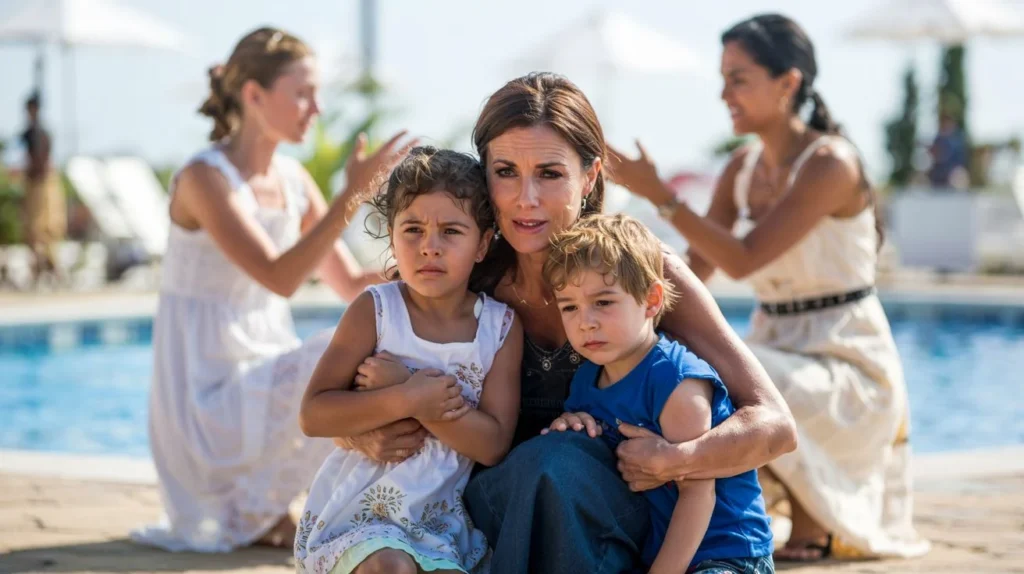
‘AITAH for not wanting to punish my daughter for defending her little brother?’

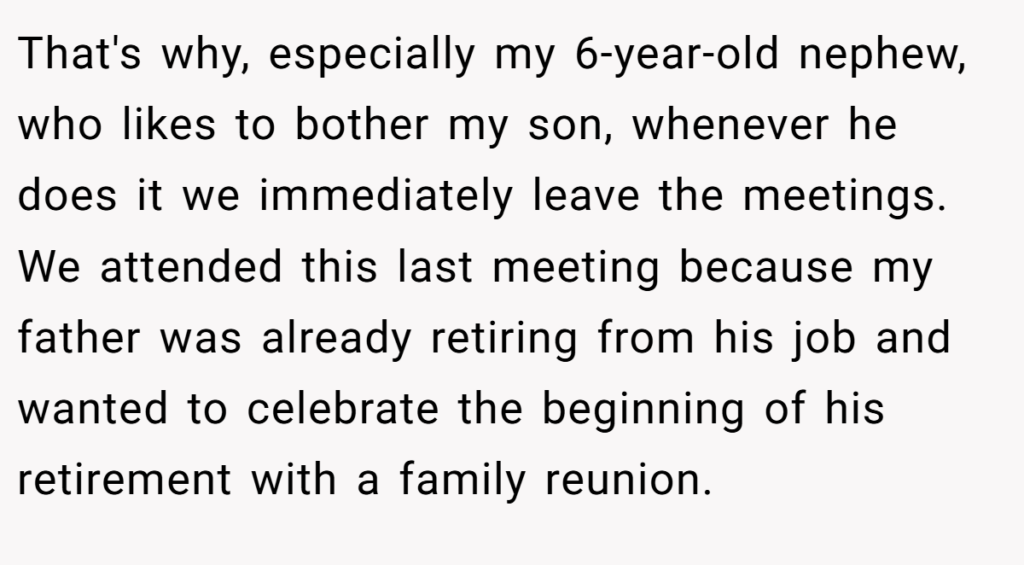
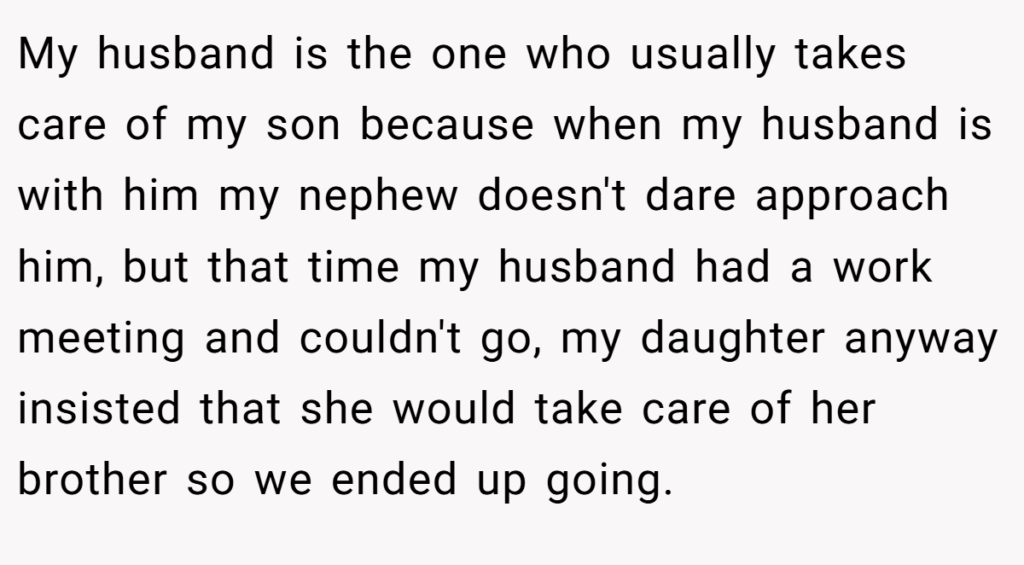
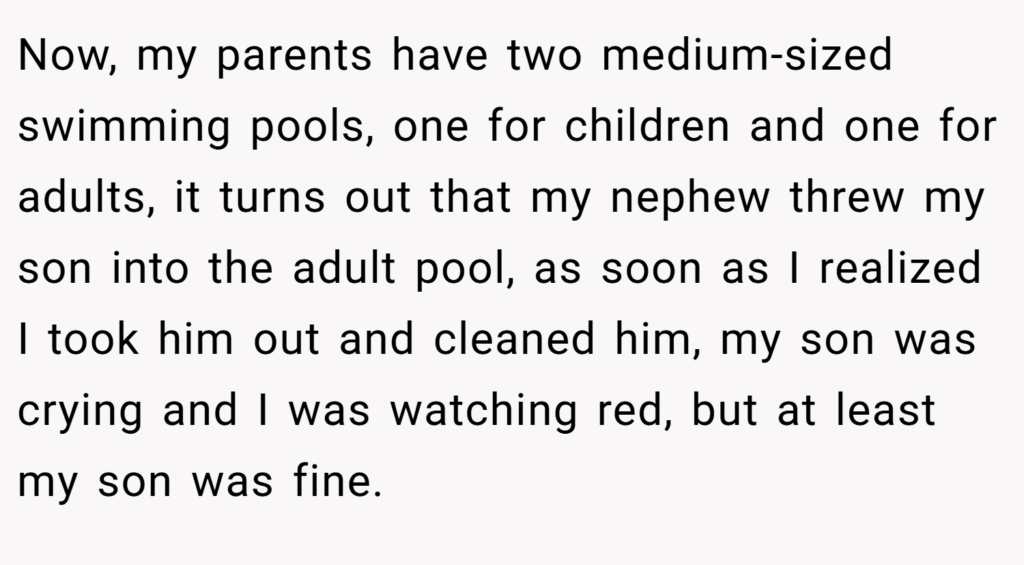
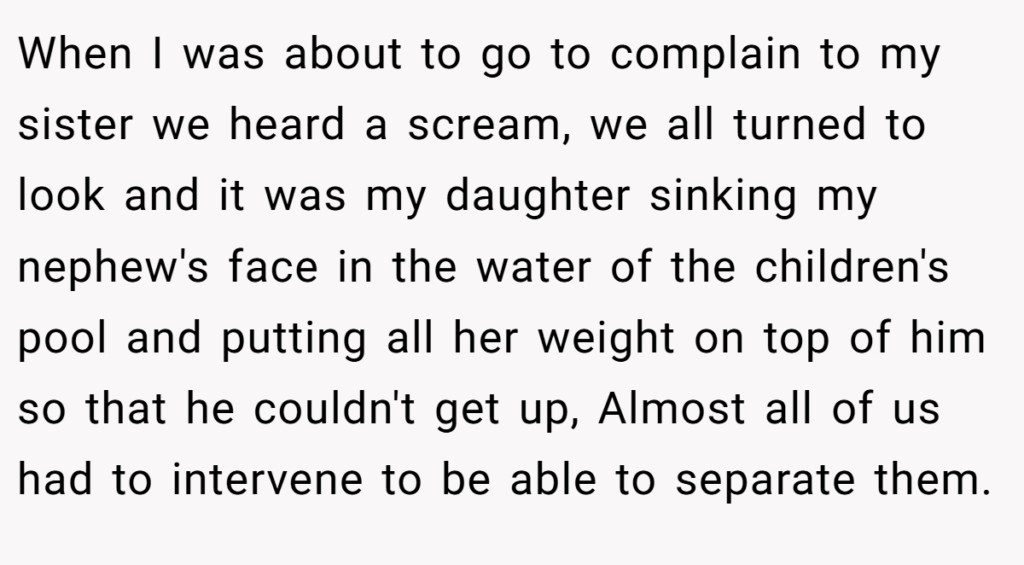
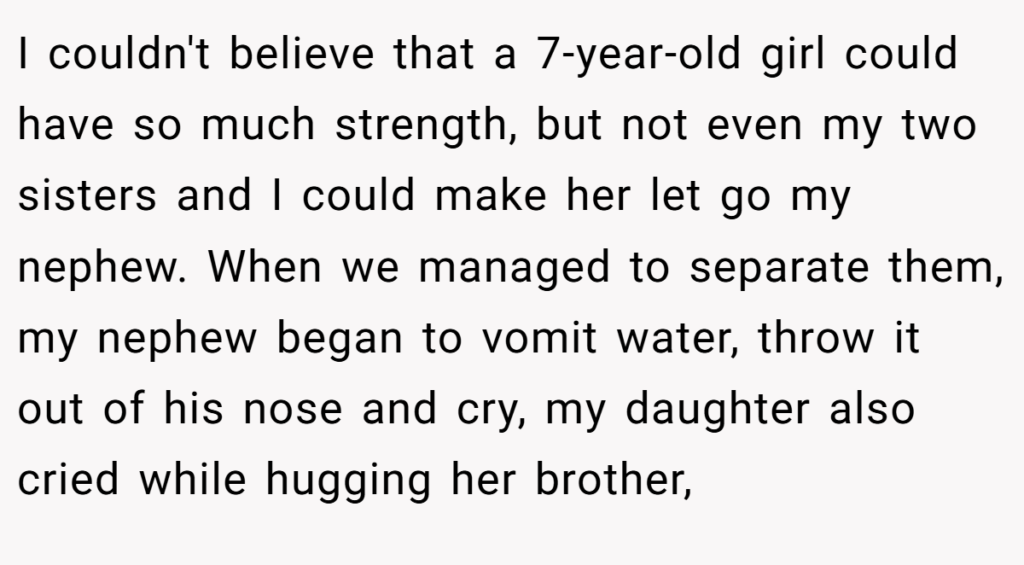
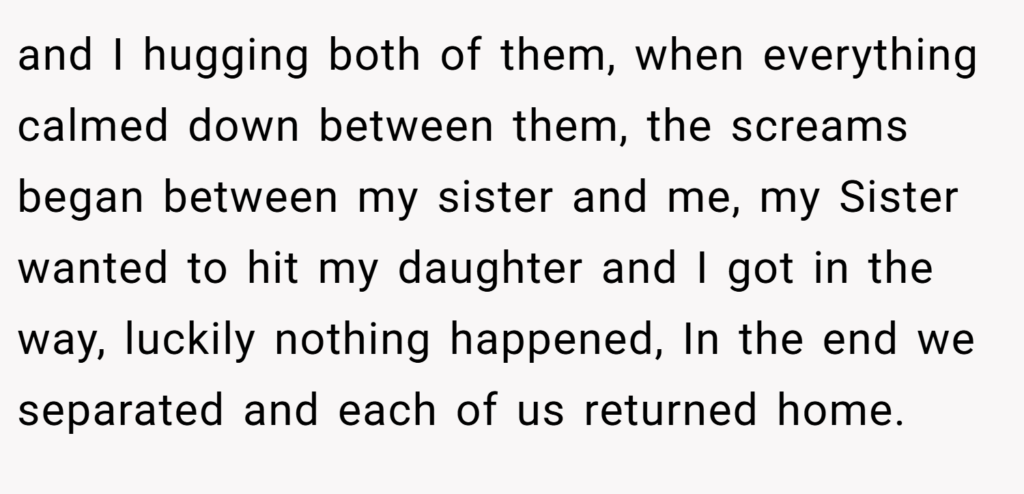
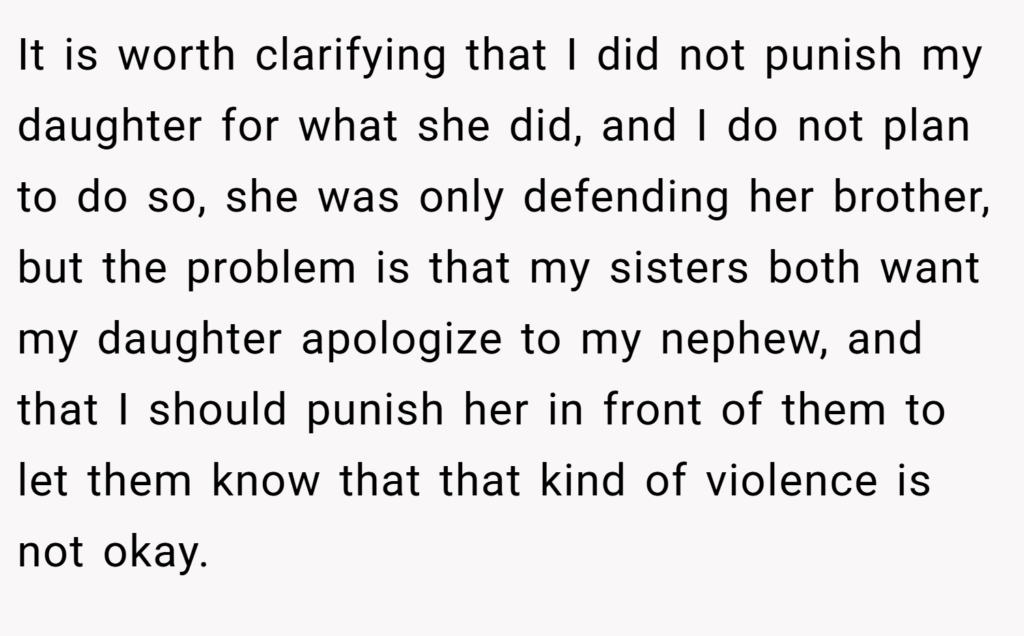
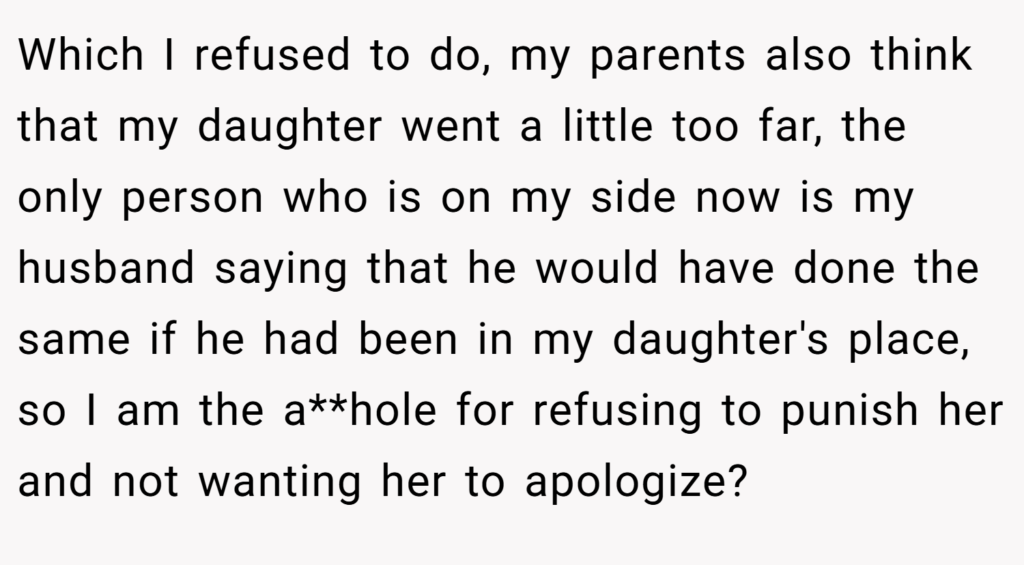
The dynamics of sibling relationships can be both deeply protective and emotionally charged, particularly when bullying is involved. In this case, a young girl’s instinct to defend her brother is understandable—even admirable to a certain extent—but the level of force she used raises important concerns about conflict resolution and the long-term impact of aggressive responses.
Parenting expert Dr. Laura Markham, author of Peaceful Parent, Happy Kids, underscores the importance of teaching children effective coping mechanisms, stating, “Our job as parents is not just to stop the immediate behavior, but to teach our children skills for life.” While the daughter’s intentions stemmed from a place of care, her actions suggest a need for guidance in handling conflict without resorting to physical retaliation.
The broader family dynamic plays a crucial role here. The original post mentions an ongoing pattern of disruptive behavior from the nephew, which adults in the family have either tolerated or failed to address properly. This lack of intervention may have contributed to the daughter’s belief that she had to take matters into her own hands to protect her younger brother.
Early intervention in bullying situations is essential, as reinforced by the American Academy of Pediatrics, which advises, “Parents should teach their children nonviolent strategies for dealing with bullying and encourage them to seek adult help.” If children feel they must resolve conflicts themselves, the risk of escalation increases, creating further strain on family relationships.
The mother’s immediate instinct to shield her daughter from criticism is understandable, but completely avoiding a discussion about her actions may send the wrong message. It’s important to acknowledge her protective intentions while also making it clear that using physical force—especially in a dangerous manner—is unacceptable. Rather than resorting to punishment, a calm and constructive conversation about alternative ways to handle similar situations in the future can be beneficial. Teaching assertiveness, problem-solving, and the importance of seeking adult intervention may help her develop healthier coping mechanisms.
Ultimately, the goal is to guide the daughter toward becoming a supportive sibling while understanding the impact of her actions. Ignoring the incident or focusing solely on the nephew’s disruptive behavior risks missing a key opportunity for growth. A balanced approach—validating her emotions, addressing the severity of her response, and providing alternative solutions—will likely serve her best in the long run.



The situation described is indeed complex and emotionally charged. It’s understandable that the mother is torn between defending her daughter’s protective instincts and addressing the severity of her actions. The daughter’s reaction, while extreme, seems to stem from a place of love and frustration, especially if the nephew’s behavior has been consistently overlooked. However, the use of force raises valid concerns about how conflicts are resolved within the family. It’s crucial to address the root cause—the nephew’s behavior—rather than just focusing on the daughter’s response. The family’s pressure to discipline the daughter feels unfair if they’ve failed to address the nephew’s actions earlier. What steps can the family take to ensure a healthier dynamic moving forward? How can they teach both children to handle conflicts without resorting to aggression? This situation highlights the importance of open communication and early intervention in family disputes.